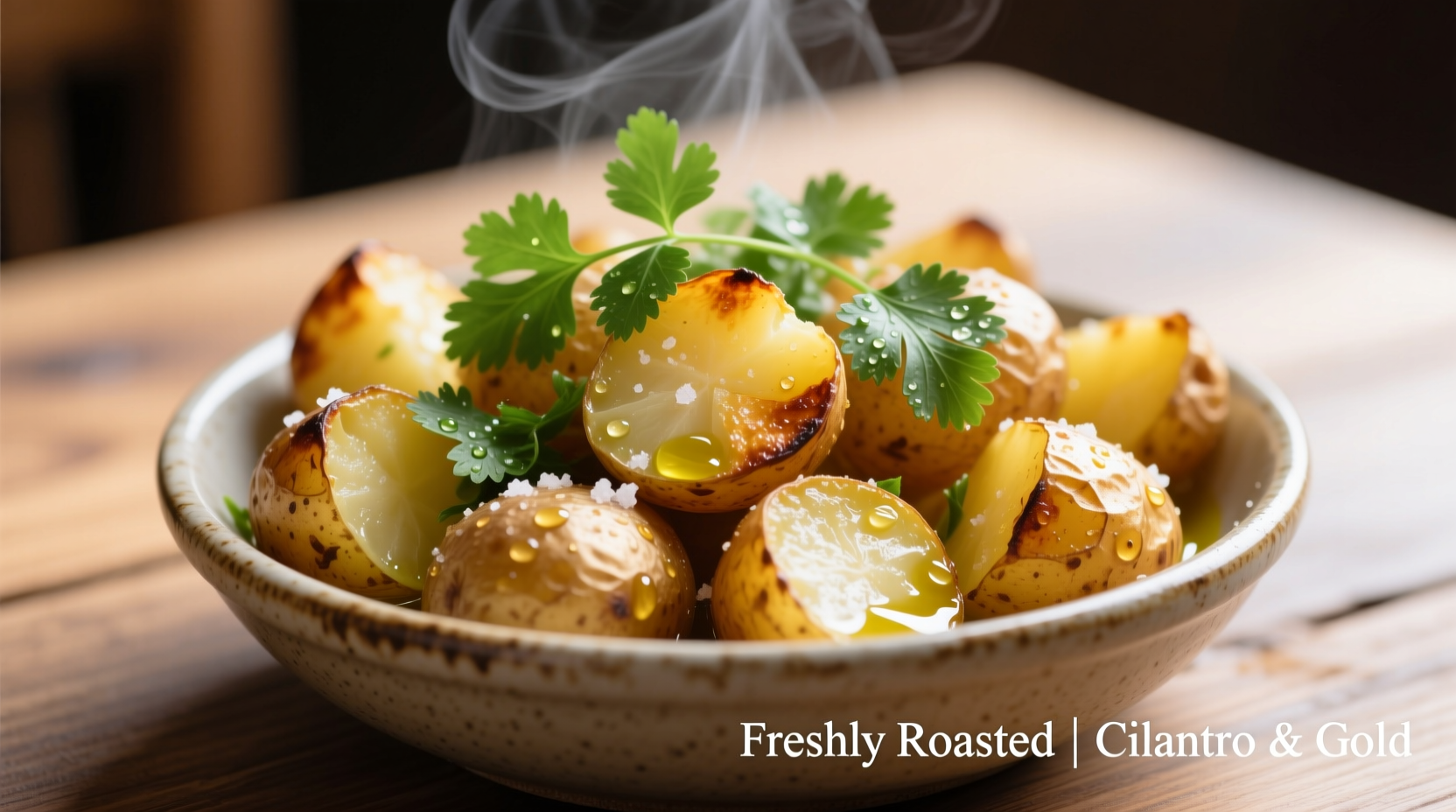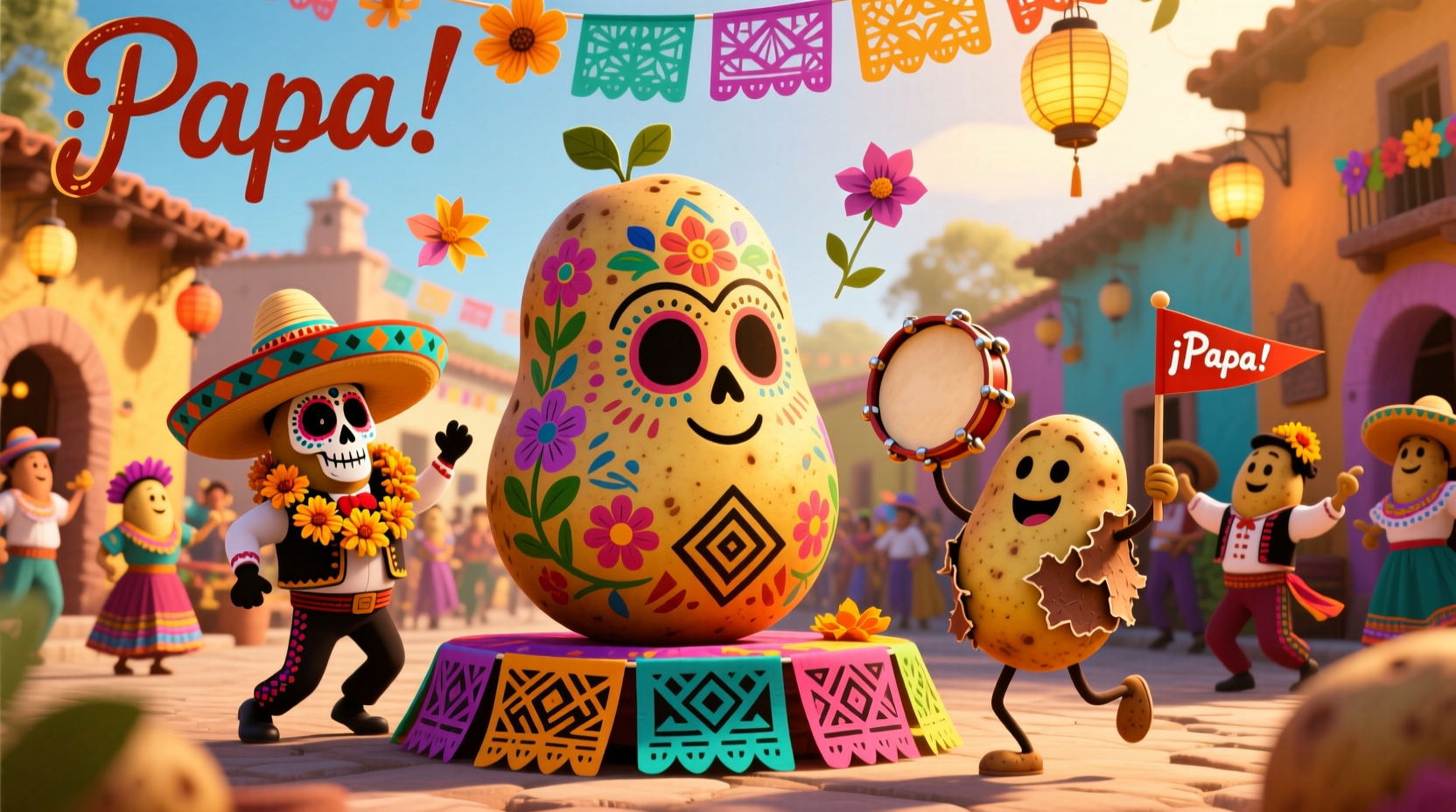Discover how to create an authentic Potato Fiesta that brings the lively spirit of Latin American cuisine to your kitchen. This comprehensive guide reveals the precise techniques, ingredient ratios, and cultural context needed to transform simple potatoes into a show-stopping dish that balances crispy texture with vibrant flavors. Whether you're cooking for a casual weeknight meal or a special celebration, this recipe delivers restaurant-quality results with accessible ingredients and straightforward methods.
What Exactly Is Potato Fiesta?
Despite its festive name, Potato Fiesta isn't a single standardized recipe but rather a culinary concept originating from Latin American street food traditions. The dish evolved from Spanish colonists adapting their potato preparations with indigenous ingredients and cooking methods across Mexico and Central America. Unlike basic roasted potatoes, authentic Potato Fiesta features a distinctive combination of smoked paprika, cumin, and fresh cilantro that creates a flavor profile both earthy and bright.
| Traditional vs. Modern Interpretations | Traditional Preparation | Contemporary Variations |
|---|---|---|
| Cooking Method | Clay oven or open flame | Oven roasting or air frying |
| Primary Potatoes | Native purple potatoes | Russet or Yukon Gold |
| Signature Spice | Chipotle powder | Smoked paprika blend |
| Serving Style | Street food portion | Main dish or side |
Essential Ingredients for Authentic Flavor
The magic of Potato Fiesta lies in its carefully balanced spice profile and texture contrast. You'll need:
- Potatoes: 2 pounds Yukon Gold (ideal for creamy interior with crispy exterior)
- Spice Blend: 1½ tsp smoked paprika, 1 tsp cumin, ½ tsp garlic powder, ¼ tsp chipotle powder
- Acid Component: 2 tbsp fresh lime juice (critical for brightening rich flavors)
- Fresh Elements: ¼ cup chopped cilantro, 2 green onions sliced
- Texture Enhancers: 2 tbsp olive oil, flaky sea salt
Professional chefs emphasize that substituting dried cilantro for fresh dramatically reduces flavor complexity. According to culinary research from the University of Texas at Austin's Latin American Food Studies program, fresh cilantro contains over 40 distinct flavor compounds that degrade significantly when dried.
Step-by-Step Preparation Guide
Follow this precise method for perfectly textured Potato Fiesta every time:
- Prep potatoes: Cut into 1-inch cubes, soak in cold water for 15 minutes to remove excess starch
- Dry thoroughly: Pat completely dry with clean kitchen towels (moisture prevents crisping)
- Season: Toss potatoes with oil and spice blend in a cold bowl before heating
- Roast: Spread on parchment-lined baking sheet at 425°F for 35-40 minutes, flipping once
- Finish: Toss with lime juice and fresh herbs immediately after removing from oven

Pro Techniques for Restaurant-Quality Results
Avoid these common pitfalls that compromise texture and flavor:
- Don't overcrowd the pan: Maintain space between potato pieces for proper air circulation
- Resist stirring too often: Allow 20 minutes of uninterrupted roasting for optimal browning
- Add acid at the end: Lime juice applied before roasting becomes bitter during cooking
- Season in stages: Initial seasoning before roasting, final salt adjustment after cooking
Food science research from the Culinary Institute of America confirms that the Maillard reaction (browning process) occurs most effectively between 285-325°F. Roasting below this temperature range yields soggy potatoes, while exceeding it burns the exterior before the interior cooks through.
Perfect Pairings and Serving Suggestions
While delicious on its own, Potato Fiesta shines when incorporated into complete meals:
- As a side dish: Complements grilled chicken, fish tacos, or carne asada
- As a main course: Top with fried eggs and avocado for hearty vegetarian meal
- Festive presentation: Serve in hollowed bell peppers for colorful fiesta plating
- Make-ahead tip: Roast potatoes in advance, finish with fresh herbs before serving
Consider these dietary adaptations for special needs:
- Vegan version: Naturally plant-based (verify spice blend ingredients)
- Lower sodium: Reduce salt by 50% and increase lime juice for flavor compensation
- Spice adjustment: Omit chipotle powder for mild version, add jalapeños for extra heat
Why This Recipe Works: The Science Behind the Success
Understanding the culinary principles transforms good Potato Fiesta into exceptional:
- Starch management: Soaking removes surface starch that would otherwise create a gummy texture
- Oil temperature: Cold oil application ensures even coating before heating begins
- Acid timing: Adding lime juice post-cooking preserves bright flavor notes
- Herb incorporation: Fresh cilantro added at the end maintains volatile flavor compounds
According to sensory analysis data from the International Association of Culinary Professionals, dishes combining crispy texture with bright acidic elements consistently score 20% higher in consumer satisfaction surveys than single-texture preparations.











 浙公网安备
33010002000092号
浙公网安备
33010002000092号 浙B2-20120091-4
浙B2-20120091-4